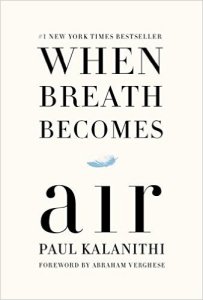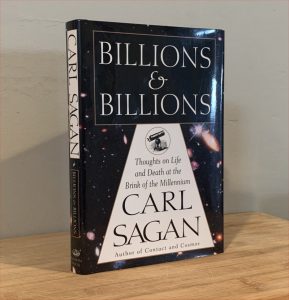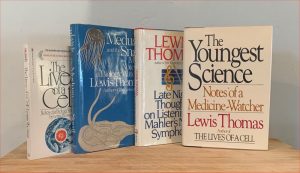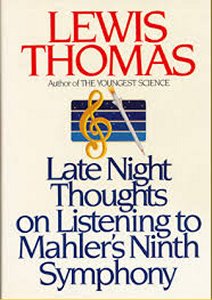 Coates, Ta-Nehisi. 2015. Between the World and Me. One World. *** 1/2
Coates, Ta-Nehisi. 2015. Between the World and Me. One World. *** 1/2
Memoir by a black intellectual written as a letter to his 15-year-old son on what he can expect as he grows up in America. Coates is deeply bitter but realistic about race relations in the US. Key phrases illuminate his perspective: about “how one should live within a black body” in a society where police are authorized to “destroy your body” even if only mistakenly. About “those Americans who believe they are white” when only a few decades before distinctions between, say, “Catholic, Corsican, Welsh, Mennonite, Jewish,” were very important. There are beautiful passages imagining a “specific slave woman” whose experiences of life are as complex as his son’s own; about the simplicity of seeing the race problem as black vs white; and finally, after visiting the mother of a childhood friend kill by police, reflecting on the “Dreamers” (those who aspire to the world the author cannot) whose technology is plundering the world. These final thoughts align the sins of racism with the hubris of progress that now threaten the safety of the planet. (post)
 Didion, Joan. 2005. The Year of Magical Thinking. Knopf. *** 1/2
Didion, Joan. 2005. The Year of Magical Thinking. Knopf. *** 1/2
Novelist and screenwriter Didion’s memoir about the sudden death of her husband John Gregory Dunne, in their apartment on New York’s upper east side, in Dec. 2003. The narrative follows details from ambulance trips to their daughter’s own hospital stays to learning how to live daily without his presence, in parallel with the gradual realization tht she is not thinking rationally, experiencing a kind of cognitive dissolance she comes to call “magical thinking.” She’s very matter of fact about the famous people they know, the exotic places they’ve lived, but also introspective in her speculations on how things might have gone otherwise, the role of luck in events, while being unable to completely avoid those magical habits of mind. As such it’s an example of struggling to reconcile the animistic thinking of base human nature with the conscious awareness needed to navigate modern society. (post)
 Junger, Sebastian. 2021. Freedom. Simon & Schuster. *** 1/2
Junger, Sebastian. 2021. Freedom. Simon & Schuster. *** 1/2
Part memoir, part philosophical reflections, based on several sessions of walking, with a small group of friends, the railroad lines in Pennsylvania, living like hobos, avoiding security and police. Three themes. Freedom is being left alone and doing whatever you want, which is hard to do in a complex society where we are necessarily dependent on one another. (We don’t build our own houses, let alone refine our own gasoline.) Second, recalling the violence between the European immigrants who settled this area and the native Indians. The more free you were, the farther out from settlements, the greater the danger. Author describes how in disasters people are usually helpful toward each other, even sacrifice themselves for others. And how the largest of a group, whether individual male or army in a war, does not inevitably win. Three, how society has been able to think things through [to go beyond tribal morality in my terms] to establish higher principles. Democracy is an attempt to balance power and freedom. Beware leaders who aren’t willing to make sacrifices themselves, e.g. fight in battles alongside their men. With a discussion of social inequality and the “Gini coefficient”. Societies with high inequality dominate world history; how do individuals within them protect their freedoms? By thinking social values through, with examples of the Easter Rising revolution in Ireland, and a steel workers strike in Pittsburgh, winning by principle than by fighting. Finally, the author tires of wandering, and settles down, giving up a kind of freedom for a place to be at home. (post)
 Junger, Sebastian. 2016. Tribe: On Homecoming and Belonging. Grand Central/Twelve. ***
Junger, Sebastian. 2016. Tribe: On Homecoming and Belonging. Grand Central/Twelve. ***
The author of The Perfect Storm defends tribes, “small groups defined by clear purpose and understanding,” as necessary to our psychological survival. As an example of the appeal of tribal societies, he describes how European settlers in America would often leave their own to join the Indians — and virtually never vice versa. He describes his contact with war, and how, contrary to many catastrophe novels and movies, people tend to cooperate, even inspiring long-term social reforms. Then how PTSD reveals how often soldiers miss war after it’s over. A striking passage is about the dismay soldiers feel coming home to a fractured society. Both liberals and conservatives represent ancient evolutionary concerns. Junger describes a problem in vivid terms, though he doesn’t have a solution. (It’s ultimately about the tension of ancient human nature adapting to a multicultural, global society, as writers like Wilson and Pinker have explored.) (post)
 Kalanithi, Paul. 2016. When Breath Becomes Air. Random House. *** 1/2
Kalanithi, Paul. 2016. When Breath Becomes Air. Random House. *** 1/2
Moving but almost unbearably sad memoir by a young Stanford neurosurgeon who is diagnosed with stage IV lung cancer at the age of 36. He recalls studying at Stanford and getting an MA in English lit on the site, preoccupied with what makes human life meaningful. Then the book follows the course of his treatment, as he becomes the patient, not the doctor. Despite his fate, his wife and he decide to have a child, and he revisits his family’s rituals. There is a running theme of the friction between the humanities and science, the limitations of the latter, and the central values of Christianity, despite his rejection of any kind of revelation. Human knowledge grows from the relationships among people, and is never complete. (post)
 Kinsley, Michael. 2016. Old Age: A Beginner’s Guide. Crown/Tim Duggan Books. ** 1/2
Kinsley, Michael. 2016. Old Age: A Beginner’s Guide. Crown/Tim Duggan Books. ** 1/2
The journalist and Slate co-founder, sufferer of Parkinson’s Disease for 23 years, ponders strategies for dealing with news of a serious illness, the potential of deep brain stimulation (DBS), life extension technology, and stem cells; reflects on Alzheimer’s, reputations, and contrasts baby boomers with the “Greatest Generation” who won World War II, and how American exceptionalism — “the belief that the rules of nature and humanity don’t apply to us” — keep getting us into wars. A collection of chapters first published as magazine pieces, it’s notable for Kinsley’s self-deprecating wit. (post)
 Sacks, Oliver. 2015. Gratitude. Knopf. ***
Sacks, Oliver. 2015. Gratitude. Knopf. ***
A collection of four short essays written by the author after learning he had only a few months to live. He learns to focus, to ignore politics and global warming, things he cares about but no longer has time for. More than fear, he feels gratitude, for being given sentient life and experiencing the world. And he compares the horror of his family’s reaction to his being gay, to acceptance decades later at a family event in Israel. And finally welcomes death as a kind of Sabbath. (post)
 Sagan, Carl. 1996. Billions & Billions: Thoughts on Life and Death at the Brink of the Millennium. Random House. ***
Sagan, Carl. 1996. Billions & Billions: Thoughts on Life and Death at the Brink of the Millennium. Random House. ***
One of Sagan’s last books, this is a collection of essays, many based on shorter pieces written for Parade magazine. Topics include the book’s title phrase, which Sagan claims he never actually said, and the power of exponents, applied to four great cosmic questions. Sagan asks “what are conservatives conserving?” to discuss environmental dangers of global warming, and how the right-wing denies them. A final section about conflicts addresses the US vs. the Soviet Union; abortion (a long essay concluding the dividing line should be around the 30th week, when an embryo’s thinking becomes barely possible); moral codes (the golden rule, the silver rule, etc., and the concept of zero-sum games). A final chapter, by Sagan’s wife Anne Druyan, describes treatments for a rare disease, and his death in 1994. (post)
 Thomas, Lewis. 1983. The Youngest Science: Notes of a Medicine-Watcher. Viking. ***
Thomas, Lewis. 1983. The Youngest Science: Notes of a Medicine-Watcher. Viking. ***
A collection of autobiographical essays about medicine and the author’s own career. The startling take-away is how little actual medicine, in the modern sense, there was only a century ago. In the early decades of the 20th century, most diseases were simply untreatable. Penicillin and vaccines weren’t widely used until the 1950s. In a section contrasting 1911 medicine with 1933 medicine, Thomas notes that even in 1933, medical students were taught to diagnose diseases more than to treat them. He describes life as an intern in a hospital, a time when you went to the ER only if you felt your life was in danger; then the patient went into a ward to be made comfortable until he died, or, rarely recovered on his own. Medicine made little or no difference. With observations about how research is done, rates of cancer following transplants (I’ve heard about this personally), and finally about his pessimism about the human race (writing in 1983), faced with one or another existential crisis. (post)
 Thomas, Lewis. 1983. Late Night Thoughts on Listening to Mahler’s Ninth Symphony. Viking. ***
Thomas, Lewis. 1983. Late Night Thoughts on Listening to Mahler’s Ninth Symphony. Viking. ***
Thomas was a pediatrician and doctor and an essayist whose first book, The Lives of a Cell (brief discussion) won a National Book Award. This third volume of essays collects 24 essays in 168 pages. The title essay isn’t about Mahler per se, but how that music evoked for him imminent nuclear doom (this was the early 1980s), with two other essays about the consequences of nuclear war. Other essays are on various topics, exhibiting Thomas’ insight and wisdom: the age of science; the seven wonders of the natural world; the closing of mental hospitals; ideas about altruism; how the system defeats scientific fraud; and about the “two cultures” and the mystery of music. (post)
 Westover, Tara. 2018. Educated: A Memoir. Random House. ***
Westover, Tara. 2018. Educated: A Memoir. Random House. ***
Memoir about the author growing up in rural Idaho, one of seven kids in a survivalist family who never sends their kids to doctors, or to school; who fear the government and are sure the Days of Abomination are due any moment. She’s determined to get out into the world, and she does so, and learns about all the things her parents never told her. Still, the title refers not so much to her secular education as it does coming to understand her family, and learn to understand them, if not entirely accept them. Interesting bits: Father reads from holy books but thinks most other books are harmful; when nothing happens at Y2K father, sure the world would end, feels betrayed by God; the family is extremely careless both in their junkyard business and in cross-country drives; in her studies at Cambridge Tara reflects on how history comes to be written. With reflections on my own family. (post)





